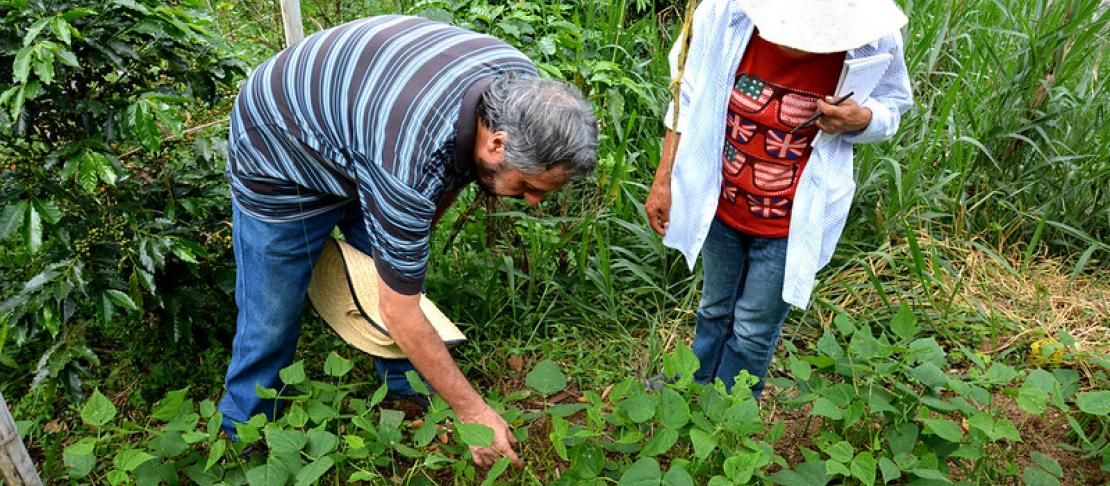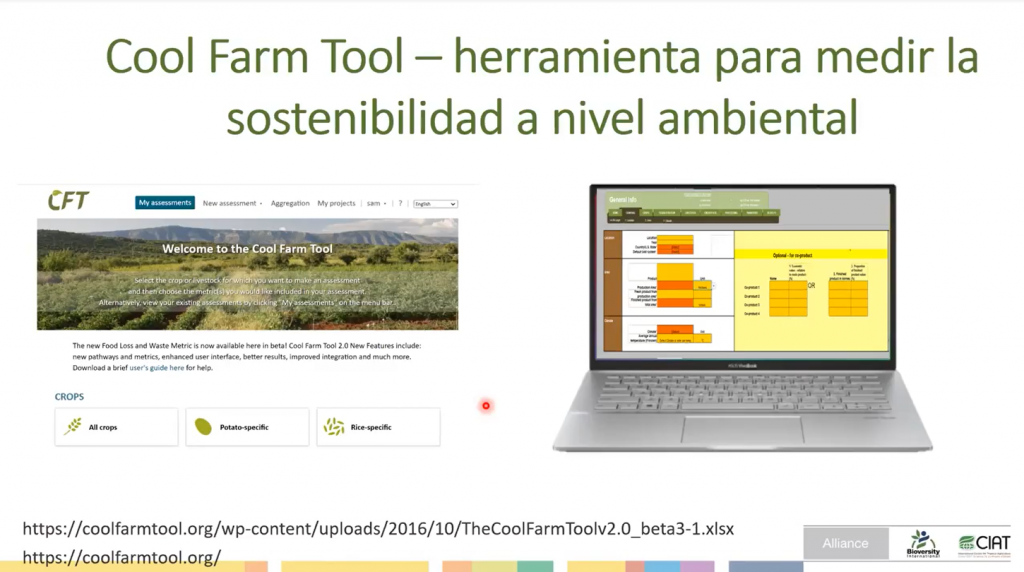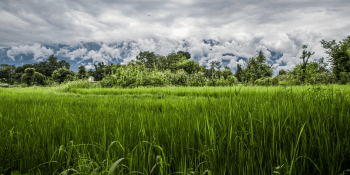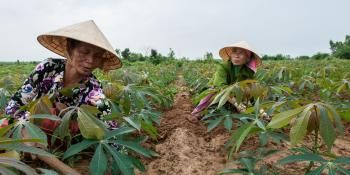Boyacá's contribution to environmental sustainability

On 18 August 2021, the CGIAR program of Climate Change, Agriculture and Food Security (CCAFS) and the Alliance of Bioversity International and CIAT led a virtual workshop in Boyacá, Colombia. The objective of this workshop was to generate and disseminate agricultural knowledge, through a participatory process. It focussed on ways to help farmers on the Local Technical Agroclimatic Committees (LTAC's), evaluate how much Greenhouse Gases (GHG) their agricultural activities produce.
Participants included representatives of the Secretariat of Agriculture of Boyacá, the Secretariat of Environment and Sustainable Development, Corpoboyacá, the Pedagogical and Technological University of Colombia (UPTC), the University of the Andes (UA), the University of Tolima (UT), the University of Cundinamarca (UC), the offices of the Mayors of Paipa and Firavitoba, Regional System of Protected Areas (SIRAP)- Corpoboyacá, and the Regional Autonomous Corporation (CAR).
One of the research packages considered in the workshop was a training module devoted to the Cool Farm Tool (CFT): a calculator focused on measuring the carbon footprint of agricultural systems. The Cool Farm Tool could allow small-scale farmers, researchers, students and technicians in Boyacá to estimate Greenhouse Gas emissions based on the agronomic management of crops and changes in land use.

The Cool Farm Tool could also potentially help its users determine which of the Climate-Smart Agriculture (CSA) practices the LTAC's recommends have the greatest climate mitigation potential. Additionally, it can provide support in decision-making at the local and governmental levels in relation to the environmental impacts generated by the different relevant agricultural activities in the region.
The workshop followed a theoretical and participatory methodology, where the exercises proposed throughout the workshop would aim to foster the development of leadership and teamwork, promote the generation of networks and the search for alliances among participants, and for the implementation of this tool in the different agricultural sectors of the department of Boyacá. It also aimed to share information on the applicability of the tool in other regions and projects.
Conclusions and recommendations
- GHG emission results could be integrated into the generation of Comprehensive Climate Change Management Plans in the department of Boyacá and environmental programs that are being developed by farmers' associations in the region.
- More participatory workshops should be arranged that could identify opportunities and strengthen the capacities of the farmers that make up the MTA.
- While the information from the workshop was disseminated in the Agroclimatic Technical Table and through different social networks, farmers or members of the Boyacá associations were not able to participate in this workshop. This could be due to the workshop being held virtually; given that the vast majority of producers in the area do not have access to the internet.
- It was recommended that continuous communication be maintained between Local Technical Agroclimatic Committees, farmers, institutions and other relevant entities, in order to validate the results of the workshop with the different projects developed in Boyacá, as well as to monitor and control advances in sustainable management related to climate adaptation on farms.



